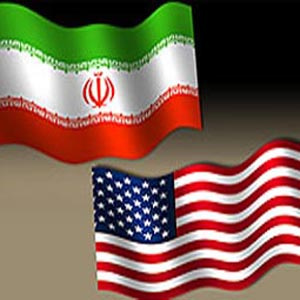Green Light or Diplomatic Gesture? Opening U.S. Interests Section in Tehran
Iranians are most probably aware of the White House’s intention

Is Iran, as President Ahmadinejhad claims, really going to think upon U.S. idea to open a diplomatic bureau in Tehran? Or as Ali Larijani -speaker of the Iranian Parliament- has said, this is just a ’deceitful rumor’ that is not worth consideration?
Is Iran flashing the green light for White House officials or this is just another diplomatic gesture?
Friday prayers in Tehran’s noon, still witnesses "death to America" chants, walls around Tehran are painted with anti-American slogans, U.S. embassy in Tehran is called the ’den of espionage’ and Tehran-Washington disputes over Iran’s nuclear program are still at their height.
In United States, Iran is dubbed the biggest sponsor of terrorism and a member of the ’axis of evil’. White House and the Congress are going to toughen the sanctions to force Iran stop its uranium enrichment program. No signs of détente can be observed.
The idea of U.S. opening a diplomatic bureau in Tehran has been in fact put forward by some American newspapers. Condi Rice has stressed that Bush administration has not still decided about opening an interests section in Iran.
Since 1980, when Iran and the United States broke their diplomatic ties, the Swiss embassy in Tehran assumes representation of United States’ interest in Tehran, while the Pakistani embassy in Washington undertakes the same task for Iran. Unlike United States, the Iranian interests section in Washington provides consular services for its tens of thousand of citizens who live in America. But since American consular and diplomatic staffs have no direct presence in Tehran, Iranian citizens have to travel to countries like UAE to obtain a U.S. visa.
The anti-American sentiment of Iranian officials within the past thirty years has probably disenchanted Americans to ask for opening an interests section in Tehran.
Americans are still resented with the hostage-taking crisis that happened 29 years ago and they know establishing an interests section in Tehran is not devoid of consequences. One of its aftermaths will be the signals sent for the global community that talk of United States’ inclination to improve its relations with Iran. It is unlikely that the United States wants to send such a signal to its allies while tensions over Iran’s nuclear program are at their height.
On the other hand, in Iran the concern is that welcoming the idea may be judged as a withdrawal from revolutionary slogans, especially when the Iranian president is famously anti-American and his supporters do not want to see any sign of compromise between Tehran and Washington in the current circumstances.
Last week, when Mahmoud Ahmadinejhad welcomed the idea of U.S. opening an interests section in Iran and called it beneficial for expansion of relations between the two nations, a group of Iranian students calling themselves "Students’ Justice-seeking Movement" released a statement, warning of ’another revolutionary move’ that would shut down the bureau.
So it seems that the two countries are not in the situation to embark a diplomatic change in their relations. Bush administration officials believe that rejection of the proposal by Iranians will improve United States’ diplomatic face and show that it is the other side that fears restoring contacts. Most probably Iranians have been aware of the White House’s intention. That’s why they welcomed the proposal to introduce themselves as pro-negotiations.
In order to show its good will, Tehran has even repeated its 2-year old plan to set up direct flight between Iran and the United States. Since Iranian officials give no weight to the U.S. proposal -like Ali Larijani who consider it as a ’deceitful rumor’- they see no reason to oppose such plans by the Iranian side.
United States’ plan is welcomed only because of its informality. United States has not officially put the proposal forward since the country is concerned about the reaction among its allies. Thus, up to now the whole idea has been a win-win game for both countries, bringing them diplomatic prestige when no step has actually been taken forward.

